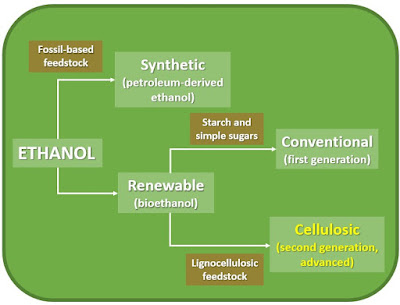Haldor Topsoe to build a demo plant to produce methanol from biogas and green electricity
Type of post: NEWS.
Haldor
Topsoe will build a methanol plant to scale-up its electrified and
extremely compact eSMR Methanol™ technology for production of sustainable
methanol from biogas. It is expected to demonstrate that the process can compete
with traditional methanol production based on fossil fuels in terms of cost.
Press release: “Topsoe
to build demonstration plant to produce cost-competitive CO2-neutral methanol
from biogas and green electricity”, 16/7/2019.
Figure 1. Comparison between a traditional
reactor and the electrified compact reactor of Haldor Topsoe
Location
|
Aarhus
University’s research facility in Foulum (Denmark)
|
Feedstocks
|
The technology
exploits the full carbon potential of biogas by utilizing even the 40% CO2
content which is routinely separated and vented today.
Green
electricity from wind turbines or solar panels instead of natural gas.
|
Product
and production capacity
|
10 kg/h
of methanol.
|
Start-up
|
Beginning
of 2022.
|
eSMR Methanol™ technology features
- The unit is about 100 times smaller than the
traditional ones. A conventional steam reforming unit can reach the size of a
six-story building whereas the compact unit has only a few cubic meters.
- It replaces the natural gas-fired heating of
traditional steam reformers with the direct electric heating of the catalytic
process.
- It is a very attractive solution for
decentral biogas sites and world scale producers alike. Today, biogas in grid
quality is much costlier to produce than the natural gas it replaces. If biogas
producers can generate sustainable methanol, they will be able to increase
their production value significantly and compete on commercial terms with
fossil-based products. Methanol is used as a clean fuel or an important
intermediary in the production of many chemicals and polymers.
- It is CO2-neutral when based on
biogas as feedstock and green electricity for heating.
The project
Haldor Topsøe is leading the eSMR Methanol™ project, which includes the partners Aarhus University, Sintex A/S, Blue World Technology ApS, Technical University of Denmark, Energinet A/S, Aalborg University and PlanEnergi. The project is supported by the EUDP Energy Technology Development and Demonstration Program.




